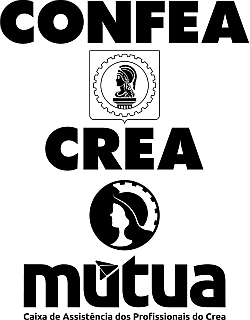Método para análise de níveis de serviço em praças de pedágio
DOI:
https://doi.org/10.14295/transportes.v19i3.374Abstract
Este trabalho propõe um método para análise de níveis de serviço em praças de pedágio. O método foi elaborado a partir de dados representativos de condições operacionais características de rodovias e praças de pedágio brasileiras. O método proposto é baseado na percepção de usuários de praças de pedágio acerca da qualidade de serviço nas praças. A percepção dos usuários foi captada através de pesquisa qualitativa, que envolveu o uso de cenários microssimulados representativos de situações de tráfego em praças. A partir dos resultados da pesquisa qualitativa, foi realizada modelagem e obtida equação que relaciona a qualidade percebida pelos usuários com os fatores intervenientes: porcentagem de caminhões no fluxo, tamanho de fila e número de cabines de atendimento. Os resultados indicaram que o comprimento de filas nas cabines exerce forte influência sobre a qualidade percebida nas praças. Além da equação, é proposta uma escala de níveis de serviço relacionada com a qualidade percebida pelos usuários em praças de pedágio.
Palavras-chave: praças de pedágio, nível de serviço, pesquisa qualitativa, simulação.
Abstract: This paper proposes a method for analyzing level of service at toll plazas. The method was built from data representing spe-cific operational conditions of Brazilian highways and toll plazas, and it is based on toll plaza quality service as perceived by users. Us-ers’ perception was captured by qualitative research, which involved the use of microsimulated scenarios representing traffic situations at toll plazas. The outcome of the qualitative research was a model relating service quality as perceived by users with the influence fac-tors: trucks percentage, queue length and number of toll booths. The results suggest that queue length at toll booths has a strong influ-ence on perceived quality at toll plazas. This paper also proposes a hierarchy for the level of service related to service quality perceived by users at toll plazas.
Keywords: toll plaza, level of service, qualitative research, simulation.
Downloads
Downloads
Published
How to Cite
Issue
Section
License
Authors who submit papers for publication by TRANSPORTES agree to the following terms:
- The authors retain the copyright and grant Transportes the right of first publication of the manuscript, without any financial charge, and waive any other remuneration for its publication by ANPET.
- Upon publication by Transportes, the manuscript is automatically licensed under the Creative Commons License CC BY 4.0 license. This license permits the work to be shared with proper attribution to the authors and its original publication in this journal.
- Authors are authorized to enter into additional separate contracts for the non-exclusive distribution of the version of the manuscript published in this journal (e.g., publishing in an institutional repository or as a book chapter), with recognition of the initial publication in this journal, provided that such a contract does not imply an endorsement of the content of the manuscript or the new medium by ANPET.
- Authors are permitted and encouraged to publish and distribute their work online (e.g., in institutional repositories or on their personal websites) after the editorial process is complete. As Transportes provides open access to all published issues, authors are encouraged to use links to the DOI of their article in these cases.
- Authors guarantee that they have obtained the necessary authorization from their employers for the transfer of rights under this agreement, if these employers hold any copyright over the manuscript. Additionally, authors assume all responsibility for any copyright infringements by these employers, releasing ANPET and Transportes from any responsibility in this regard.
- Authors assume full responsibility for the content of the manuscript, including the necessary and appropriate authorizations for the disclosure of collected data and obtained results, releasing ANPET and Transportes from any responsibility in this regard.









